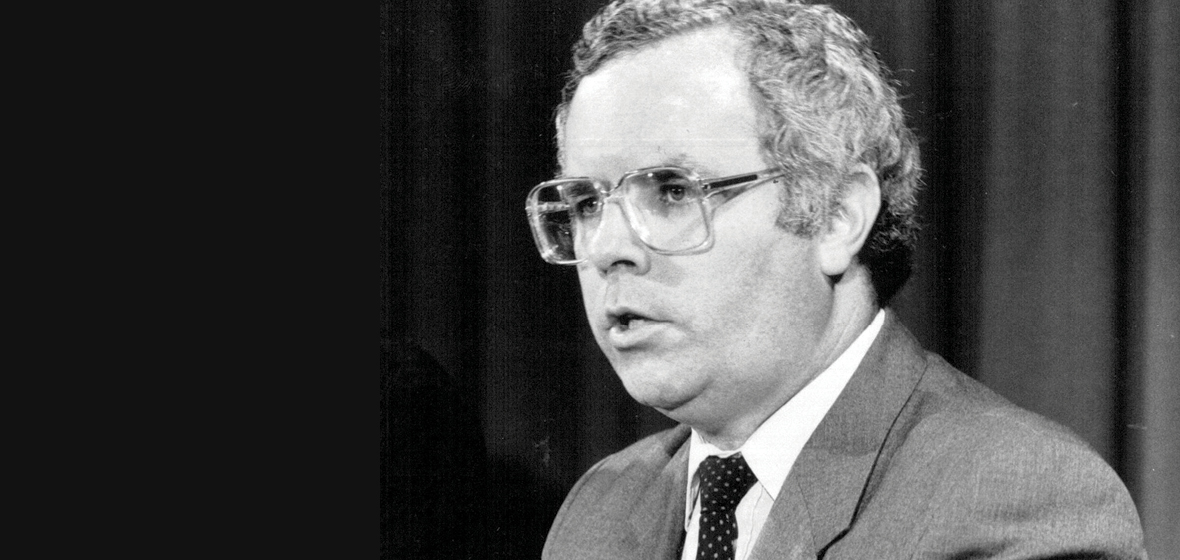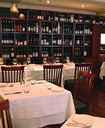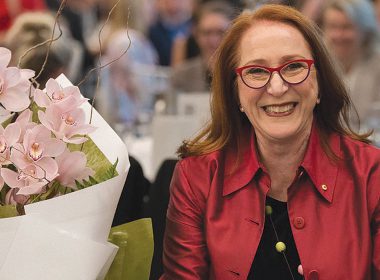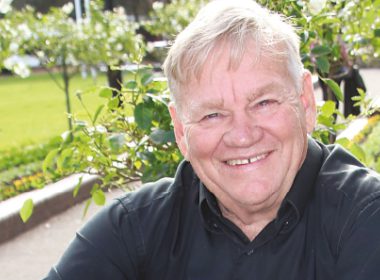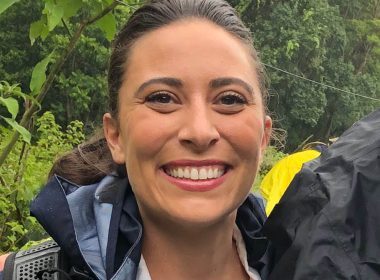Terry Sheahan retired as a judge of the NSW Land and Environment Court in August. His two decades on the bench came after a long political career, which included serving as NSW Attorney-General between 1984 and 1987. Over lunch with AMY DALE, he reveals travel plans, misunderstandings about the work of the Land and Environment Court, and why we should celebrate the solicitor Attorneys-General.
Terry Sheahan is a proud solicitor who never went to the bar, even when he was approached to take silk as NSW Attorney-General.
“For a long time, it was traditional that the Attorney-General would always be a barrister,” the recently retired Justice of the NSW Land and Environment Court tells LSJ over lunch at Mazzaro, one of his favourite restaurants and a sunlight-bathed room where he trades familiar banter with the owner, George.
“The process of appointing silks was that the Bar Association would go and see the Attorney-General with a list, and the Attorney had rights to add themselves or anybody employed by the Crown to the list,” Sheahan continues.
“There was an expectation by the bar that the Attorney-General would make himself silk and there was some precedent of that if you look back over the history. They said to me, ‘We would like you to put your name at the top of the list’, and I said no.”
That precedent also includes Sheahan’s father, Bill, a senior silk who served as Attorney-General in the 1950s. But Sheahan Jnr says he “never regretted not doing that”.
“I got made a judge in the end and it didn’t matter if I was a silk or not. I went back to being a solicitor when I was out of work in 1988 [when Labor lost the state election],” he says.
That defeat did not spell the end of Sheahan’s career on Macquarie Street. His lunch with LSJ comes three months after he retired from the bench, after 22 years presiding over a courtroom across the road from NSW Parliament House.
It is a place that holds many memories for Sheahan from his time as Attorney-General between 1984 and 1987. During that time, he introduced a suite of criminal justice reforms including establishing the Director of Public Prosecutions, with Reg Blanch QC at its helm, and the NSW Judicial Commission.
Solicitors bring that practical exposure to the world to the role, away from the igloo of Phillip Street. I never felt a disadvantage that I wasn’t a barrister, it was never a problem. The [justice] department is full of really good lawyers. I had the benefit of good advice and I was always happy with it.
“I’m a very proud solicitor, and we should celebrate that many of us have gotten to the highest law office in the state,” he says.
“Solicitors bring that practical exposure to the world to the role, away from the igloo of Phillip Street. I never felt a disadvantage that I wasn’t a barrister, it was never a problem. The [justice] department is full of really good lawyers. I had the benefit of good advice and I was always happy with it.
“In terms of the practical interaction of the system, the profession and the punter, I think a solicitor has got a better nose for that.”
The Land and Environment Court is just footsteps away from the Queens Square and King Street law buildings, but very rarely do press packs swarm
its doorstop.
Sheahan recalls a prospective applicant for a role at the court who said they wanted to work there because of their passion for addressing climate change.
“[Former NSW Appeal Court Justice Terence Cole] said, and I think it’s very true, that judges answer questions that other people write for them. You can’t just sit there and say I want to make a judgment about climate change,” he says.
“Many people think courts are all about crimes and pillage, all of that stuff. The Land and Environment Court has a range of jurisdictions. People think the big developers are in there getting their stuff ticked, but we don’t see them very often. A lot of the cases involving development is someone putting in an attic in their place and the neighbour objects.
“It’s a wonderful place to work and the range of jurisdiction is very stimulating. It would be good if everyone knew what we did.”
Despite a career in professions where tensions frequently boil over – in both law and politics – he has fostered lifelong friendships. His diary features regular catch ups with colleagues from his ministerial days. Over the course of two decades on the bench, he had just two associates, and he plans to meet up with one of them for lunch the day after his date with LSJ.
“It’s a very intimate connection – judge, associate and tipstaff working together in a closed space for 12 months producing judgments and making decisions,” he says.
“You might need to turn something around in five hours, so you need to know the person isn’t going to run off. You need to know that the person is going to work hard, you take for granted that they can pass their exams. I don’t know what they think of me, I just want to know what sort of movies they like.”
Although he says he remains keen for any future “useful and valuable work”, after a long and illustrious career, travel and family are priorities for retirement.
“I am not sure there are too many more mountains I want to climb. I had a good time. I was 22 years a judge, so I feel like I have been there, done that,” he says.
“I worked for 50 years in and around the law, in and around Macquarie Street. I now feel I’ve done my hard yards and I don’t have any aspirations.
“Some people have asked, ‘Why don’t you do mediation?’ and I think well, I started mediation in NSW, so happy to leave that as it is.
“I got married [to my second wife Jenni] during the course of my judicial career, so I say that tomorrow is for us. We’ve got children, grandchildren, travel, all those things.”
The couple’s next destination is Europe and the Aurora Borealis in Norway. It seems fitting as Sheahan stands ready to be a guiding light for his political party if the call comes.
He renewed his Labor party membership in the week after retirement while “they were busy with ICAC at the time”. He still refers to Labor as “one of the three great institutions in my life” – the other two being his high school, the Christian Brothers High School in Lewisham, and the Sydney University Law School.
“If I can be useful [to the party], I will be.”

